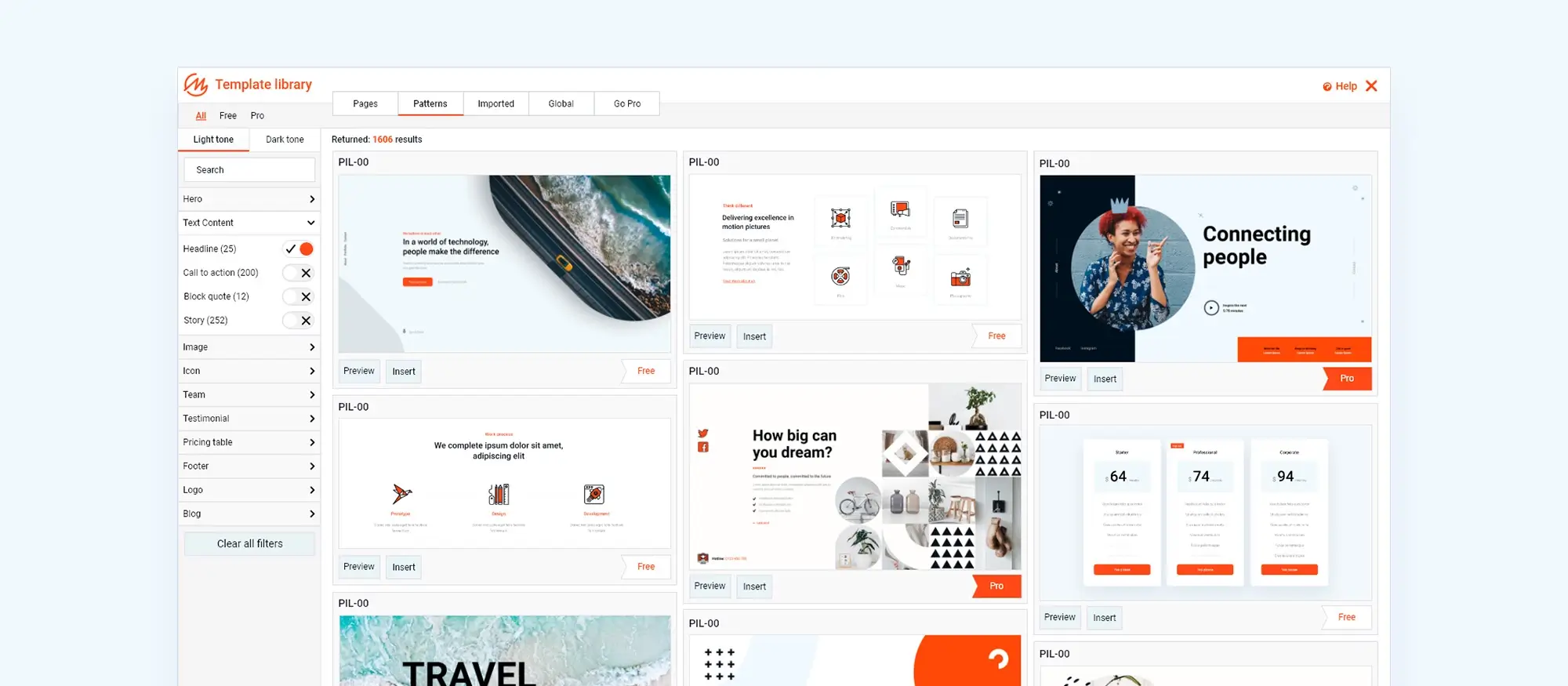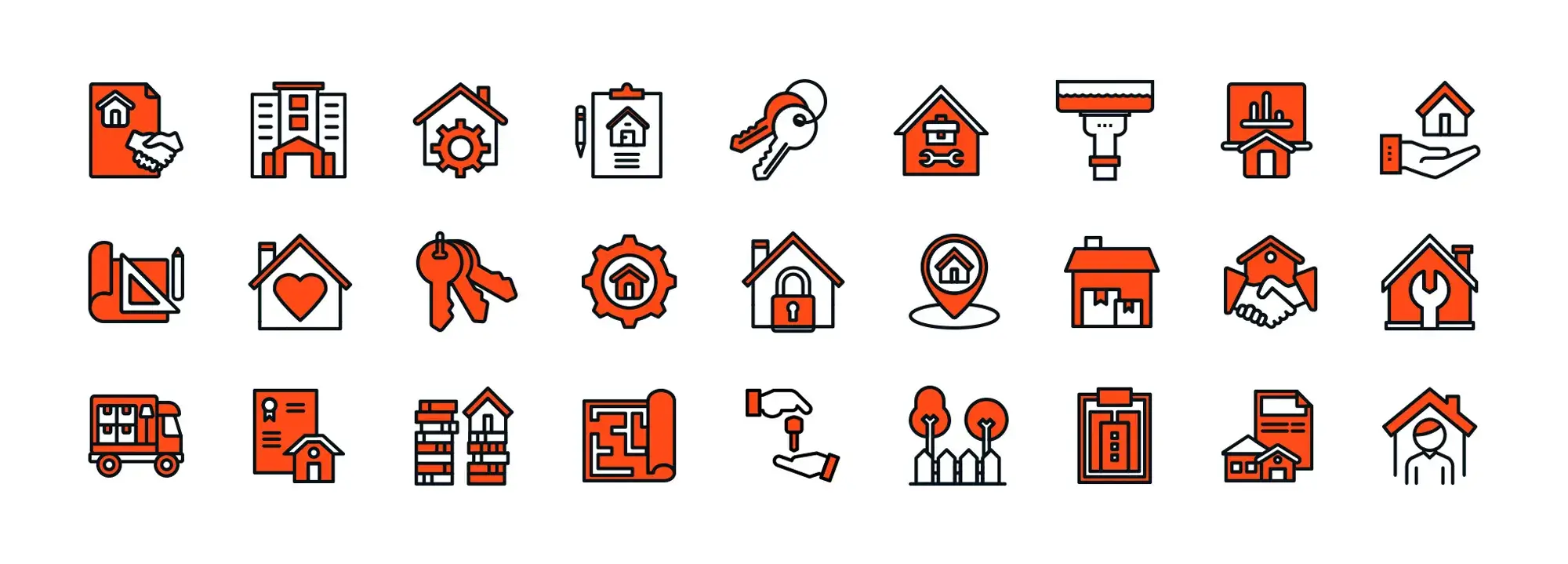20 things to consider with WordPress hosting
Try MaxiBlocks for free with 500+ library assets including basic templates. No account required. Free WordPress page builder, theme and updates included.

Updated 15th May 2025
Choosing the right WordPress hosting
Choosing the right WordPress hosting is an important decision that can have a big impact on the success of your website. With so many options available, it is worth taking time to understand what to look for. Here are some of the key points you should keep in mind when picking a hosting provider for your WordPress site.
Performance and speed
Fast loading times are crucial for keeping visitors on your site and improving your search engine rankings. Things like server speed, caching options and content delivery networks can all affect your website’s performance. A good hosting provider will have the right infrastructure in place to make sure your site runs quickly and smoothly. Speed is not just about a better experience for your visitors but also about helping your site perform better in search results.
Server uptime
Uptime is the amount of time your website is online and available to visitors. Ideally, you want a hosting provider that can guarantee an uptime of at least 99.9 percent. Even a small amount of downtime can add up and affect your site’s reputation and traffic. It is a good idea to monitor your site’s uptime regularly so that you can deal with any problems quickly if they arise.
Security features
Security should be a top priority when choosing a hosting provider. WordPress sites can be attractive targets for hackers, so you want a host that offers strong protection. Look for features like free SSL certificates, built-in firewalls and regular malware scans. Good security also means keeping your plugins and themes updated and using strong passwords to protect your site.
Backup and restore options
No matter how careful you are, things can go wrong. That is why regular backups are so important. A good hosting provider will offer automated backups and an easy way to restore your site if you need to. Having reliable backup options in place gives you peace of mind and can save a lot of time and trouble if something unexpected happens.

What to look for when choosing WordPress hosting
Customer support
Choosing a hosting provider with strong customer support is important because problems can happen at any time. A good provider will offer help around the clock through live chat, phone and email. When issues come up, you want someone knowledgeable who can respond quickly and fix problems before they affect your visitors. Quick support means you can get back to focusing on running your website instead of worrying about technical issues.
Scalability
As your website grows, your hosting needs may change. A good hosting provider should make it easy for you to upgrade your plan when you need more storage, bandwidth or other resources. Scalability is important because it lets your site handle more visitors without slowing down or needing a major overhaul. It is better to choose a provider that offers flexible options so you can expand easily when the time comes.
Cost and pricing plans
It is tempting to pick the cheapest hosting plan but it is better to look closely at what you are actually getting. Some plans seem affordable but come with hidden fees for extras like extra storage or higher bandwidth limits. Try to find a balance between cost and value. Make sure the hosting package covers everything you need now and allows room for your site to grow without a huge jump in price.
Control panel and user interface
Managing your hosting should not be complicated. A good control panel makes it easy to set up email accounts, manage databases and install WordPress. Well-known options like cPanel and Plesk are popular because they are straightforward and easy to learn, even if you are not very technical. A clear, user-friendly interface saves time and makes running your website a lot less stressful.
Subscribe to our newsletter
Hosting essentials for WordPress websites
Data centre locations
The physical location of your hosting provider’s data centres can have a real impact on your website’s speed and performance. If your main audience is in the UK, for example, choosing a provider with data centres in or near the UK can help your site load faster for those visitors. Some hosting companies even let you choose where your data is stored, which is especially useful if you have a global audience and want to make sure users everywhere get a good experience.
Bandwidth and storage limits
Every hosting plan comes with limits on bandwidth and storage, and it is important to know what you are getting. Bandwidth is the amount of data your website can send and receive, while storage is the space available for your site’s files, images and videos. If your site grows quickly or has a lot of media content, you could hit these limits sooner than you think. Running out of bandwidth can slow down your site or cost you extra money. It is worth checking what your hosting plan includes and making sure it matches both your current needs and your future plans.

Key hosting considerations for WordPress websites
Managed versus unmanaged hosting
With managed hosting, the provider takes care of the technical tasks for you. This includes updates, security checks and regular backups. It means you can focus on your website content and running your business without worrying about technical maintenance. Unmanaged hosting, on the other hand, gives you full control but also means you need a good understanding of server management and security. Think about how comfortable you are with handling these tasks yourself when deciding between the two options.
Email hosting
Having a professional email address that matches your domain name gives your business more credibility. Some hosting providers include email hosting as part of their packages. It is worth checking what is offered, especially things like spam filtering, storage space and how easily you can connect it to your WordPress site. A good email setup can make communication with your clients and visitors much smoother.
Staging environment
A staging environment lets you create a copy of your site where you can safely test changes before they go live. It is a useful feature if you want to try out new plugins, redesign your pages or update your WordPress version without the risk of breaking your live site. Hosting providers that include staging environments make it easier to manage changes and updates without any downtime or disruption.
Migration services
If you ever need to move your website to a new host, it helps to have migration support. Some hosting companies offer free or low-cost migration services to assist with transferring your files, databases and settings. A smooth migration ensures your website stays online and working properly during the move, which can save you time and avoid unnecessary problems.
Content delivery network (CDN)
A content delivery network, or CDN, can make your website faster by spreading your content across servers in different locations. This means visitors load your site from the nearest server, reducing delays and helping pages load more quickly. Many hosting providers offer CDN integration or easy add-ons, and it is worth considering if you want better performance for visitors across different regions.
Build like a pro
Final hosting considerations for WordPress websites
Developer-friendly features
If you or your team are confident with coding and development, it is worth choosing a hosting provider that offers developer-friendly tools. Features like SSH access, Git integration and support for different programming languages can make development more efficient. They also give you more flexibility to customise your site exactly the way you want it. If you often work on custom projects or develop bespoke features, these tools will save you time and make your workflow much smoother.
Eco-friendly hosting
Many businesses are now looking for ways to reduce their environmental impact, and choosing a green hosting provider is one step in the right direction. Look for companies that use renewable energy, have energy-efficient data centres or invest in carbon offsetting projects. Supporting a hosting provider that prioritises sustainability is not just good for the planet, it also shows your visitors and customers that you care about environmental responsibility.
Reputation and reviews
Before making a final decision, take the time to research the reputation of different hosting providers. Reading user reviews and independent testimonials can give you a clearer picture of the reliability, customer service and overall quality of each option. Look for consistent patterns in reviews, both positive and negative, and use trusted review platforms to gather information. A hosting provider with a strong reputation is more likely to deliver the performance and support you need.
Terms of service and guarantees
It is always wise to read the terms of service carefully before signing up. Pay close attention to any guarantees, such as uptime promises or money-back policies. Knowing what to expect can help you avoid misunderstandings later on. Make sure you are happy with the provider’s conditions and that they offer enough protection if things do not go as planned. Good transparency in service terms is a sign of a trustworthy hosting company.
Choosing the right WordPress hosting is an important decision that deserves careful thought. By considering these key factors, from performance and security to sustainability and service guarantees, you will be better equipped to select a provider that meets your needs and supports the long-term success of your website.

Final thoughts on WordPress hosting
Choosing the right WordPress hosting is one of the most important decisions you will make for your website. Hosting affects everything from how quickly your pages load to how safe and reliable your site is. If your hosting is slow, your visitors will not wait around. If it is unreliable, your business could lose valuable opportunities.
Good WordPress hosting gives you a solid foundation to build on. It makes everything else you do to optimise your site far more effective. If you are investing time in design, SEO, and content, but your hosting is not up to scratch, you are limiting your results before you even begin.
There are different types of hosting to consider, depending on what you need. Shared hosting is usually the cheapest option, but you will be sharing resources with other sites, which can slow you down. Managed WordPress hosting, like what you find with providers such as Kinsta, takes care of the technical side of things for you, letting you focus on growing your site. If you have a larger site or expect serious traffic, you might look into dedicated servers or cloud hosting for even better performance.
One important thing to remember is that hosting affects your site’s SEO. Google looks at site speed and uptime when ranking pages. A fast, secure site is more likely to climb higher in the search results. If your site keeps going offline or takes too long to load, your rankings and your reputation can suffer. You can read more about the connection between hosting and SEO from Yoast.
Security is another major factor. A good host should offer regular backups, malware scanning, and support when you need it. You want peace of mind that your site is safe, without having to check it constantly.
If you are planning a new WordPress site or thinking about giving your current one a serious refresh, now is the perfect time to make sure you have the right hosting behind you. It is also the perfect time to choose the right tools to build your site properly. MaxiBlocks is a brilliant option if you want a fast, flexible, and easy way to create stunning WordPress pages. You can get started with MaxiBlocks today by installing the free plugin, and for the best results, pair it with the MaxiBlocks Go theme. You will be surprised how much quicker and easier building a professional site becomes when you have the right foundation and the right builder working together.
The truth is, hosting is not just a technical detail you sort out once and forget about. It is the engine that powers everything you do online. Get it right, and you set yourself up for success. Get it wrong, and no amount of design or content will save you.
Choosing the right WordPress hosting for custom websites
When building a custom WordPress website, hosting is one of the most important decisions you will make. It affects your site’s speed, reliability, scalability and security. Whether you are a freelancer or part of a team, understanding what to look for in a hosting provider can save you countless hours of troubleshooting. This guide to WordPress hosting is a good place to start, helping you compare core features such as server uptime, SSL support and backup options.
For more tailored solutions, WordPress website hosting offers tools designed specifically for WordPress users. If you are weighing up multiple services, take a look at these WordPress hosting options to evaluate shared, managed and cloud-based platforms. A strong hosting setup ensures your custom build performs consistently well and is equipped to grow alongside your client’s business.
Enhancing performance with the right tools
Once you have chosen your hosting environment, the next step is to optimise the site itself. A custom WordPress website gives you complete control over layout, features and functionality. To support performance and security from day one, make use of essential WordPress plugins or browse this expanded plugin guide to cover everything from SEO to speed optimisation.
If you are working as a freelance WordPress web designer or alongside top WordPress designers, having the right technical tools is just as important as design skills. For layout control, understanding how Flexbox works and applying directional tips can help you build responsive, clean layouts without relying on heavy frameworks. When adding visual elements, this Font Awesome guide walks you through how to use scalable icons in a way that enhances user experience without slowing down the site.
To ensure your client’s site also ranks well, this beginner’s keyword research guide can help you build a content structure that supports search engine visibility. Hosting may happen in the background, but it plays a central role in making all these efforts work together effectively.
Smart solutions for modern WordPress web designers
Design better sites with smart solutions built for WordPress web designers and creative teams.
What is WordPress hosting?
WordPress hosting is a type of web hosting specifically optimised for websites built with WordPress. It provides the right environment, performance enhancements, security settings and support to ensure a WordPress site runs smoothly and efficiently.
Why do I need WordPress-specific hosting?
WordPress-specific hosting often includes features like one-click installation, automatic updates, enhanced security, caching systems and technical support from experts who specialise in WordPress, making it easier to manage and maintain your site.
What types of WordPress hosting are available?
The main types are shared WordPress hosting, managed WordPress hosting, VPS hosting, dedicated hosting and cloud hosting. Each offers different levels of control, performance and cost depending on your site’s needs.
What is managed WordPress hosting?
Managed WordPress hosting takes care of technical tasks such as updates, backups, caching and security for you. It is ideal for users who want a hassle-free experience and better performance without managing the server themselves.
Is shared hosting good for WordPress?
Shared hosting is suitable for small websites, personal blogs or starter projects. It is affordable but shares server resources with other websites, which can affect performance during high traffic periods.
What are the benefits of cloud hosting for WordPress?
Cloud hosting offers flexibility, scalability and reliability by hosting your site across multiple servers. It allows you to easily handle traffic spikes and provides greater uptime compared to traditional hosting.
How does VPS hosting work for WordPress sites?
VPS (Virtual Private Server) hosting provides a dedicated portion of server resources, offering better performance and greater control than shared hosting. It suits growing websites and those needing more customisation options.
Can I migrate my WordPress site to a new host?
Yes, most hosting providers offer free migration services or provide easy-to-use migration plugins. Moving your WordPress site can improve performance, security or help you find better support.
What should I look for in a WordPress hosting provider?
Look for features like fast server speeds, WordPress-specific support, strong security measures, automatic backups, SSL certificates, scalable plans and easy WordPress installation or management tools.
Is free WordPress hosting a good option?
Free hosting can be useful for learning or testing projects, but it usually comes with limitations like lower performance, restricted features, lack of support and potential adverts. For serious or business websites, a paid hosting plan is recommended.
WordPress itself
Official Website
wordpress.org – This is the official website for WordPress, where you can download the software, find documentation, and learn more about using it.
WordPress Codex
codex.wordpress.org/Main_Page – This is a comprehensive documentation resource for WordPress, covering everything from installation and configuration to specific functionality and troubleshooting.
WordPress Theme Directory
wordpress.org/themes – The official WordPress theme directory is a great place to find free and premium WordPress themes. You can browse themes by category, feature, and popularity.
maxiblocks.com/go/help-desk
maxiblocks.com/pro-library
www.youtube.com/@maxiblocks
twitter.com/maxiblocks
linkedin.com/company/maxi-blocks
github.com/orgs/maxi-blocks
wordpress.org/plugins/maxi-blocks

Kyra Pieterse
Author
Kyra is the co-founder and creative lead of MaxiBlocks, an open-source page builder for WordPress Gutenberg.
You may also like

